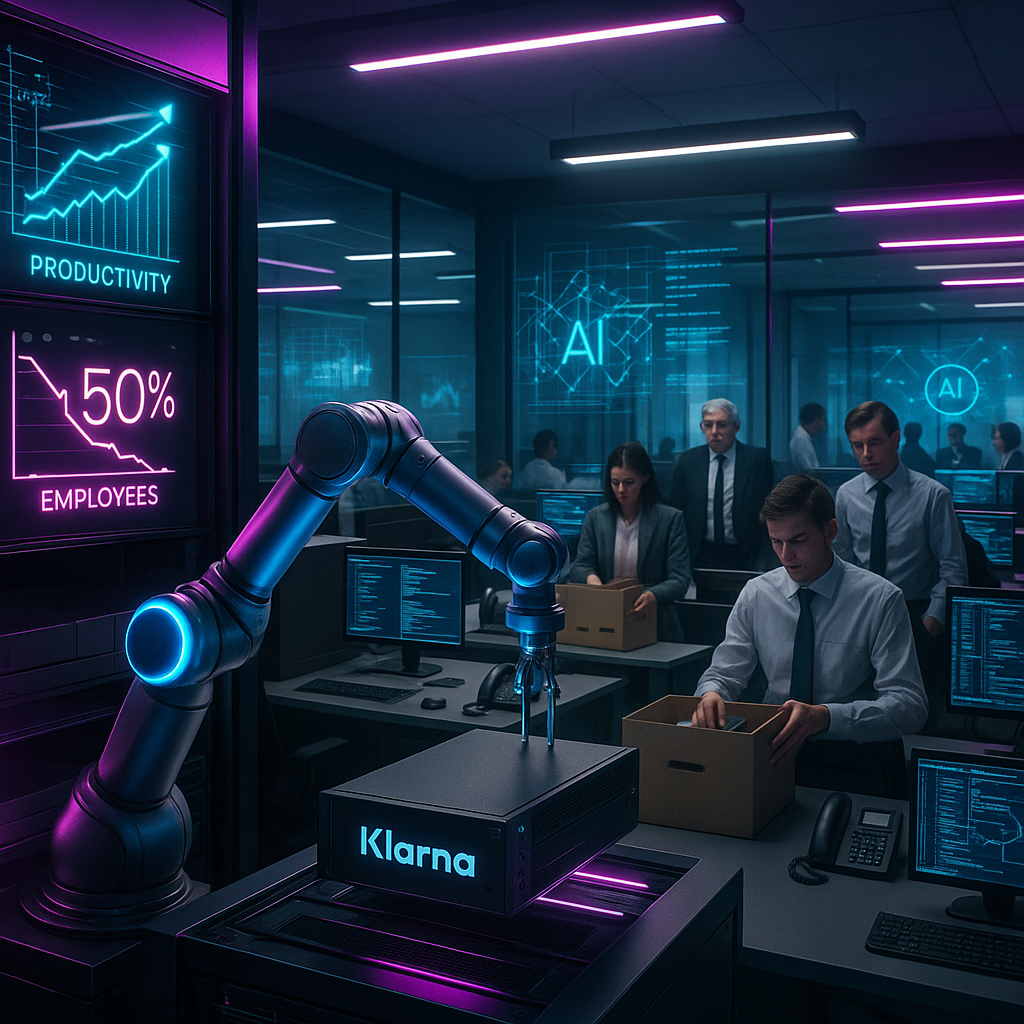Key Takeaways
- On 11 October 2025, Klarna halved its workforce through AI automation, intensifying debates over the societal impact of machines replacing human jobs.
- Top story: Klarna reduces staff by 50% via AI automation, fueling global discussions about job displacement and the future of work.
- AI chatbots are undermining the reliability of shared reality, with experts warning of an emerging “crisis of truth.”
- Teens are increasingly forming emotional bonds with AI companions, blurring boundaries between artificial empathy and genuine human connection.
- Global leaders are addressing the urgent need for coherent AI governance frameworks, as technological development outpaces policy readiness.
Below are key developments and reflections shaping today’s dialogue on artificial intelligence.
Introduction
On 11 October 2025, Klarna’s decision to halve its workforce through AI automation ignited urgent debate about the evolving balance between technological progress and human livelihoods. At the same time, global leaders face mounting pressure to advance AI governance frameworks amid concerns about reality distortion and increasing social reliance on artificial intelligence. This Press Review traces how these developments are reshaping our understanding of truth, connection, and responsibility in the age of “alien minds.”
Top Story
Klarna Halves Workforce Using AI Automation
Klarna announced it has reduced its staff by 50 percent following the implementation of advanced AI automation. This move, disclosed on 11 October 2025, positions Klarna at the center of intensified conversation regarding job displacement, economic adaptation, and the broader social implications of large-scale automation. Industry analysts noted that the decision underscores both the promise of efficiency gains and the social costs associated with rapid technological change. The development has prompted renewed calls for policy innovation and workforce retraining initiatives.
AI automation technology, while enabling operational efficiencies, also brings about fundamental shifts in employment structures and long-term industry trends.
Stay Sharp. Stay Ahead.
Join our Telegram Channel for exclusive content, real insights,
engage with us and other members and get access to
insider updates, early news and top insights.
 Join the Channel
Join the Channel
Also Today
AI Chatbots and the Crisis of Truth
Experts have raised alarms over the reliability of AI chatbots, citing a growing “crisis of truth.” With models generating convincing but sometimes inaccurate information, concerns have grown about their influence on the public’s perception of reality. Researchers called for stronger oversight and transparent evaluation methods to address risks associated with misinformation and manipulated narratives.
Discussions about misinformation and manipulated narratives highlight a core dilemma as AI systems increasingly mediate our understanding of reality.
Teens and AI Companionship
A rising trend shows teenagers increasingly engaging with AI companions for emotional support. Psychologists expressed mixed views, observing that while some users benefit from accessible support tools, the growing reliance on artificial intelligences may blur distinctions between authentic relationships and synthetic empathy. The phenomenon is prompting parents, educators, and policymakers to examine the long-term effects on adolescent development and social norms.
The growing role of machine-driven empathy is prompting comparison with debates about simulated empathy in artificial intelligence and its consequences for genuine social connection.
Global Leaders Debate AI Governance
Policymakers worldwide are accelerating discussions on the need for effective AI governance frameworks. International forums, including upcoming summits, are highlighting the widening gap between rapid technological progress and the readiness of policy to respond. Officials stressed the importance of cooperation, with several countries proposing new guidelines for transparent development, ethical standards, and global oversight of advanced systems.
Many experts argue that robust AI governance frameworks are necessary to keep pace with innovation and protect public interest as the technology evolves.
Market Wrap
Tech Sector Responds to Regulatory Shifts
AI-focused companies experienced mixed trading as investors processed recent regulatory signals. The NYSE FANG+ Index saw fluctuations, while semiconductor manufacturers reported strong gains driven by growing demand for AI infrastructure components. These market movements reflect increased investor interest in companies positioned to navigate or shape emerging regulatory environments.
Investment Shifts Toward AI Safety
Venture capital activity revealed a clear strategic shift, with significant new investments directed at AI safety and interpretability startups. Data show that early-stage funding for AI governance tools reached $2.3 billion in the third quarter of 2025, as funders seek opportunities in technology companies positioned to address regulatory and trust challenges.
What to Watch
- The Global AI Safety Summit opens in London on 28 October 2025, featuring two days of ministerial meetings.
- US Congressional AI oversight hearings begin on 4 November 2025, with testimony scheduled from leading AI researchers and industry executives.
Conclusion
The acceleration of AI automation, evolving regulatory debates, and the adoption of new ethical frameworks mark a pivotal moment for global AI governance and workforce adaptation. Industry and policy leaders are navigating the intersection of technological opportunity, social disruption, and the pursuit of safety and truth. What to watch: The Global AI Safety Summit begins on 28 October 2025, followed by US Congressional oversight hearings on 4 November 2025.
For further exploration of how these ethical frameworks and governance strategies may impact technology, see the evolving conversation around the philosophy of AI origin and the questions it raises for the future of work and regulation.





Leave a Reply